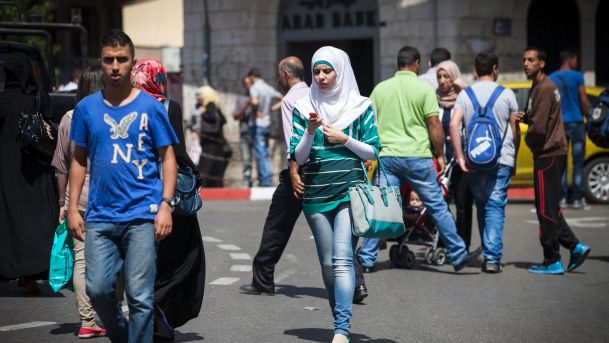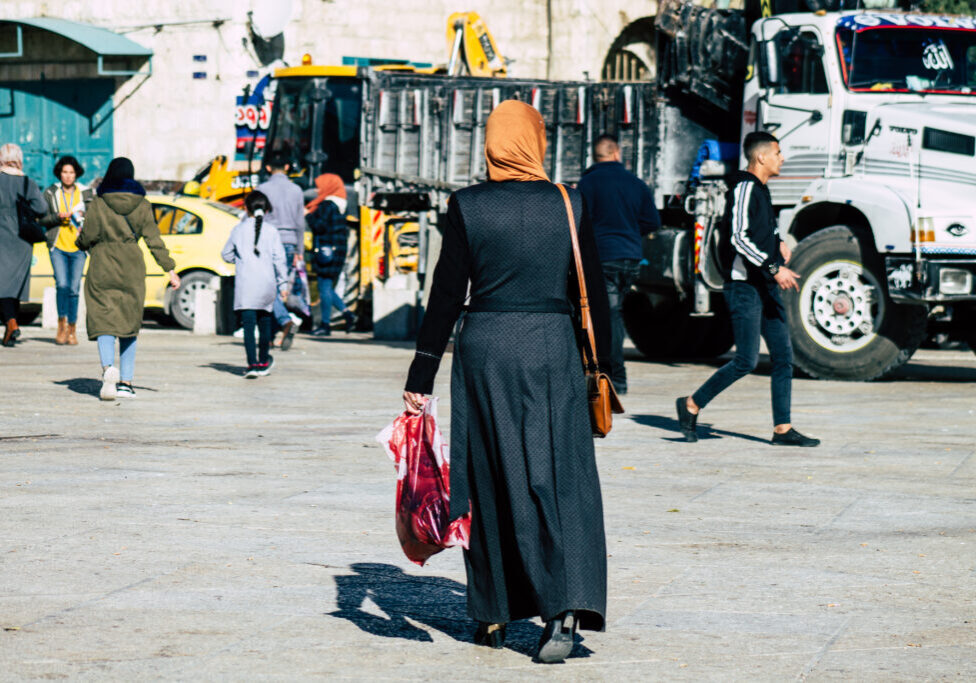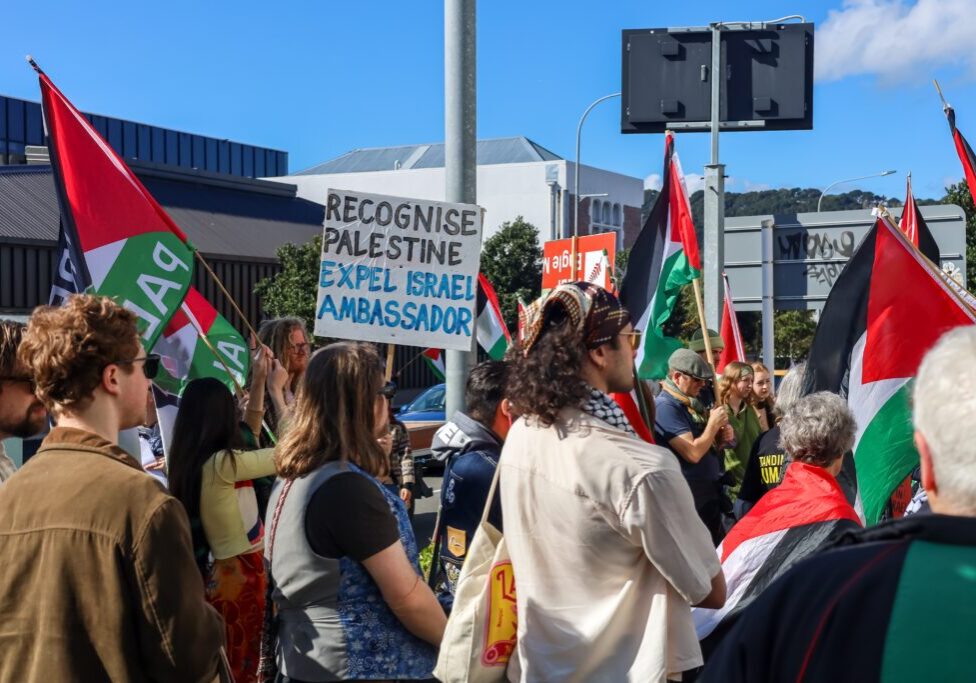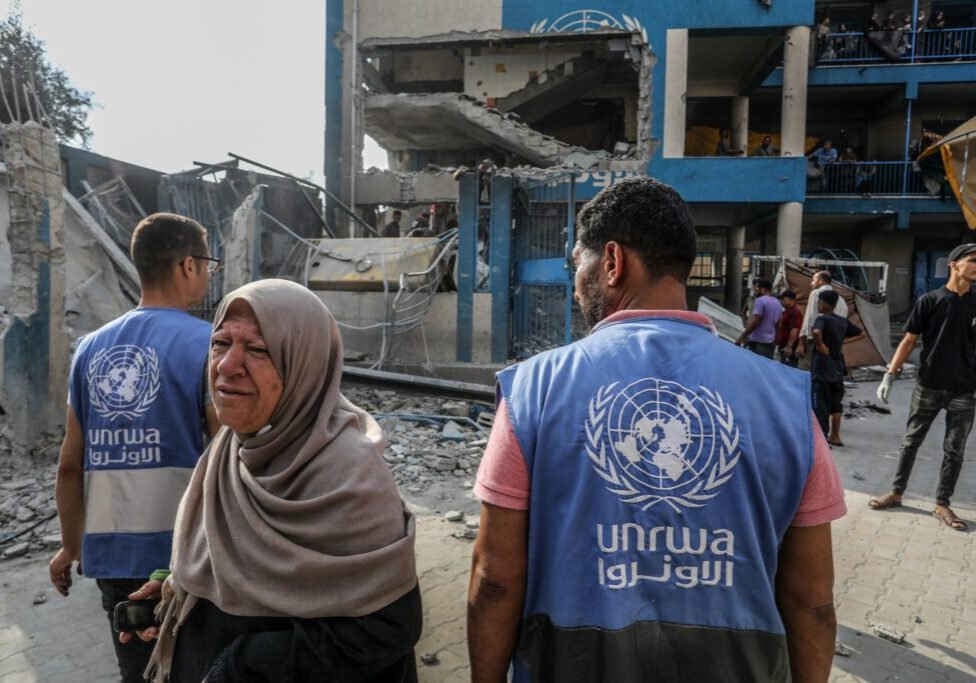Australia/Israel Review
Palestinians as Tactical Moderates, Strategic Militants
Jun 30, 2017 | David Pollock

David Pollock
Surprising results from a highly credible new survey in the West Bank and Gaza conducted May 16-26, 2017, demonstrate that Palestinians are often more moderate than their leaders on short-term political issues – such as “pay for slay” bonuses for terrorists, a US embassy move to Jerusalem, or Hamas attacks on Israel. However, many continue to hold maximalist aspirations against Israel in the long term, while rejecting its right to exist.
The most striking examples of these relatively moderate tactical popular views concern two hotly contested issues: first, Palestinian Authority (PA) payments to convicted terrorist prisoners; and second, moving the US embassy in Israel from Tel Aviv to Jerusalem. On the first issue, the poll, conducted by the Palestinian Centre for Public Opinion based in Beit Sahour on the West Bank, shows that two-thirds of Palestinians think “the PA should give prisoners’ families normal social benefits like everybody else, not extra payments based on their sentences or armed operations.” The finding is all the more significant as the survey was taken during a highly publicised hunger strike by Palestinians in Israeli jails.
On the second, the US embassy question, only a small minority of Palestinians call this a “very important issue” – a mere 12% in the West Bank, and 25% in Gaza. These low proportions are again all the more significant in view of the wide publicity and alarmist public declarations surrounding this question recently.
An additional, very significant issue on which the Palestinian public is more flexible than its leaders’ current official position is that of recognising “two states for two peoples – the Palestinian people and the Jewish people.” The PA has steadfastly rejected this formulation. But among West Bankers, nearly half (45%) would accept it “if it might help to end to occupation” – down slightly from the 56% registered in May 2015, but still offering considerable popular leeway. In Gaza, the proportions are a bit lower: 37% would accept that symbolic statement today, down slightly from 44% two years ago.
Much the same can be said about the more practical issue of “normalisation” with Israel. The PA has taken an equivocal position on this, supporting limited official interaction but also semi-officially endorsing BDS and other anti-normalisation movements. The Palestinian public, by contrast, clearly backs various forms of interaction with Israel and Israelis. Large majorities want more jobs inside Israel: 63% of West Bankers, and 70% of Gazans. Majorities – 55% in the West Bank and 57% in Gaza – also say “Palestinians should encourage direct personal contacts and dialogue with Israelis.” And around half want Israeli companies to employ more Palestinians inside the West Bank and Gaza.
On still another timely tactical issue, the majority are also surprisingly moderate. Among West Bankers, 55% say Hamas should preserve a cease-fire with Israel. Among Gazans, who have borne the brunt of this war lately, that figure rises to a remarkable 80%. A closer look at a different short-term Trump Administration suggestion, which also gets majority public support, is especially instructive. This is the idea of a “regional approach” to Israeli-Palestinian peacemaking, in which, as the poll question put it, “Arab states would offer both sides incentives to take more moderate positions.” In the West Bank, 58% approve that concept; in Gaza, 55%.
Beyond this general notion, the poll also posed this question: “More specifically, suppose the Arab states offered extra economic aid, in order to resettle Palestinian refugees in the West Bank or Gaza but not inside Israel. Do you think this would be a positive or a negative idea?” Nearly half replied that it would be positive: 41% in the West Bank, and 51% in Gaza. This is roughly in line with results from another, even more provocative question. The survey asked: “Regardless of what’s right, the reality is that most Israeli settlers will probably stay where they are, and most Palestinian refugees will not return to the 1948 lands.” The majority of West Bankers, 60%, agreed with that stark assessment. Even in Gaza, where most are descendants of refugees themselves and are daily subjected to Hamas propaganda about their “right of return”, nearly half (46%) agreed as well.
Nevertheless, these relatively pragmatic or at least mixed views on tactics and expectations do not translate into normative acceptance of Israel’s legitimacy, or even its long-term survival. Fewer than 10% of Palestinians in either the West Bank or Gaza say that “Jews have any rights to this land.” On a more straightforward political level, the survey asked about two future options after a negotiated two-state solution: whether “that should end the conflict with Israel,” or else “the conflict should not end… until all of historic Palestine is liberated.” The majority of West Bankers picked continued conflict over permanent peace, by a margin of 55% versus 35%. Gazans, remarkably, opted very narrowly the other way: permanent peace, 47%; continued conflict, 44%.
What could account for this unexpected disparity? A plausible answer lies in the trend data. West Bank results are statistically unchanged from May 2015. At that time Gazans, too, favoured continued conflict over peace, by a two-to-one margin. But in the two years since then, many Gazans have probably come to regret the lasting damage of the disastrous 2014 war on their territory, and shifted their views in a relatively peaceful direction.
On a related long-term question, however, West Bankers and Gazans are in agreement – and not in a conciliatory mode. The majority in each territory believe that ultimately, “the Palestinians will control almost all of Palestine.” They select that response either because “God is on their side” (40%), or because “they will outnumber the Jews” eventually (20%). Also very notable in this connection is that a surprising 40-plus percent of both Gazans and West Bankers disagree with this assertion: “Israel will never accept a one-state solution that gives the Palestinians equal rights, even if they become a clear majority someday.”
Interestingly, the proportion of Palestinians who invoke divine providence in this futuristic political context is much larger than those who put religion at the top of their own immediate goals. “Being a good Muslim or Christian” ranks down in the single digits as a top personal priority among the Palestinian public: just nine percent in the West Bank, and a mere seven percent in Gaza, far outranked by “good family life” or “comfortable income,” and then more distantly by “building a Palestinian state,” in that order.
How should policymakers deal with this dichotomy of short-term versus long-term Palestinian attitudes? The basic, deceptively simple answer is also one of short-term and longer-term dimensions. For now, leverage the leeway offered by public opinion to encourage greater diplomatic creativity by Palestinian officials, and greater practical progress for the Palestinian people. And looking further ahead, keep firmly in mind that, for lasting peace to be possible, any “ultimate deal” must securely pre-empt that people’s continuing, long-term irredentist aspirations.
David Pollock is the Kaufman Fellow at The Washington Institute for Near East Policy, focusing on regional political dynamics and related issues. © Washington Institute, reprinted by permission, all rights reserved.
Tags: Palestinians






